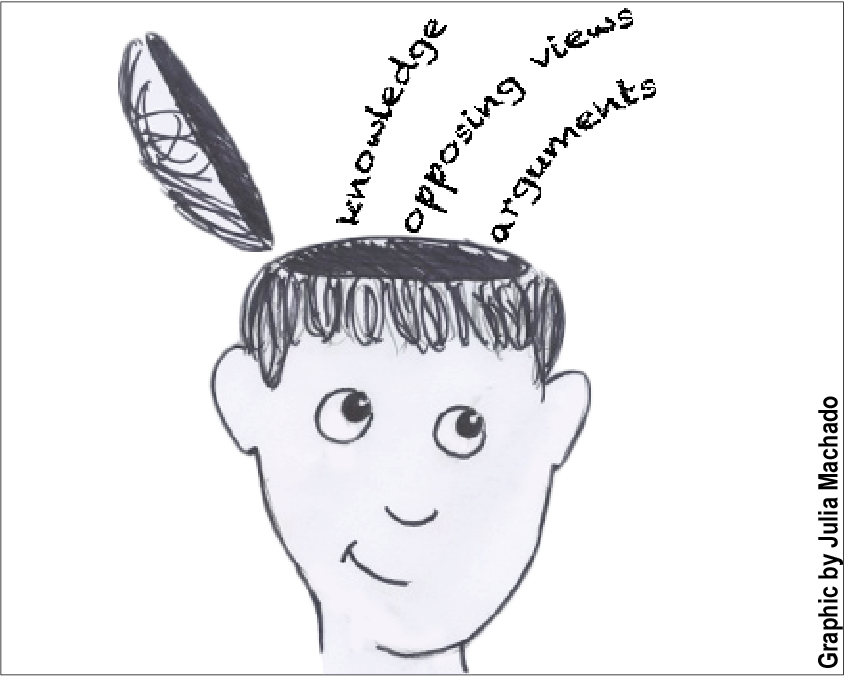
You don’t know half as much as you think you do.
About anything, really. And that goes for all of us. As high school students and, frankly, as humans, we’re quick to jump to conclusions about issues that probably warrant more than just cursory inspection.
Affirmative action is bad because someone supposedly less qualified might get into my dream school before me. ADHD medications are a convenient and harmless way to get focused on that English paper or help score those extra couple points on the ACT. Our affluent suburban paradise is perfectly insulated from the problems of the outside world.
These statements represent opinions that are the likely products of misinformation. There are perfectly valid arguments against, for example, affirmative action in college admissions. The problem is that most students don’t know the full story and thus aren’t able to make them. Add to that the fact that learning about something might put you at risk for encountering information that could challenge your beliefs, and you’ve got a recipe for ignorance.
The thing is, preconception and closed-mindedness aren’t good for anyone on any side of any issue. Understanding all facts and sides of a given problem is the only way to arrive at a viable solution. In this edition of the Torch, we cover a few tricky topics. Our coverage reflects the desire to educate readers regarding issues that they’re almost certainly aware of and probably have strong opinions about, but may not grasp in full.
In the process of reporting for and producing this issue, our own writers and editors found it necessary to immerse themselves in the subjects they were covering in greater depth than ever before. One of the writers of the front page story reported that her opinion on affirmative action in college admissions changed with each of her interviews, as she heard new arguments and gained new insight and understanding. This is what the stories are intended to do, and it is with this same openness that they should be read.
We form opinions because they’re convenient to us, because others in our lives seem to have them, because they align nicely with some preconceived worldview we use to define ourselves. Much of the time—probably most of the time—we do so without a complete understanding of the issue at hand.
Then, presented with views that differ from our own or, worse yet, with facts that contradict some aspect of our personal dogmas, we shut down. Refuse to hear it. We quiver and sweat and the cognitive dissonance practically shoots out of our ears like steam in a Looney Tunes sketch.
And it’s frighteningly easy to be infected by such an attitude. Around the election, it was aggravatingly common to see students parroting various narrow assumptions and blanket statements on the web and in person, with real, substantive discussions few and far between. It’s easy enough to spew your own opinions into the atmosphere or the blogosphere, but decidedly more difficult to engage in actual conversation about them with someone who may disagree with you. Confronting ideas that challenge the truth-as-we-know-it is rarely pleasant.
Most things in this world worth talking about are loaded with nuance and colored in shades of gray. Learning to recognize this reality and having the will to seek the full story before coming to any sort of conclusion is something that would benefit our discourse, our school and our country. We live in a complex world. Don’t be afraid to risk changing your mind every once in a while.

